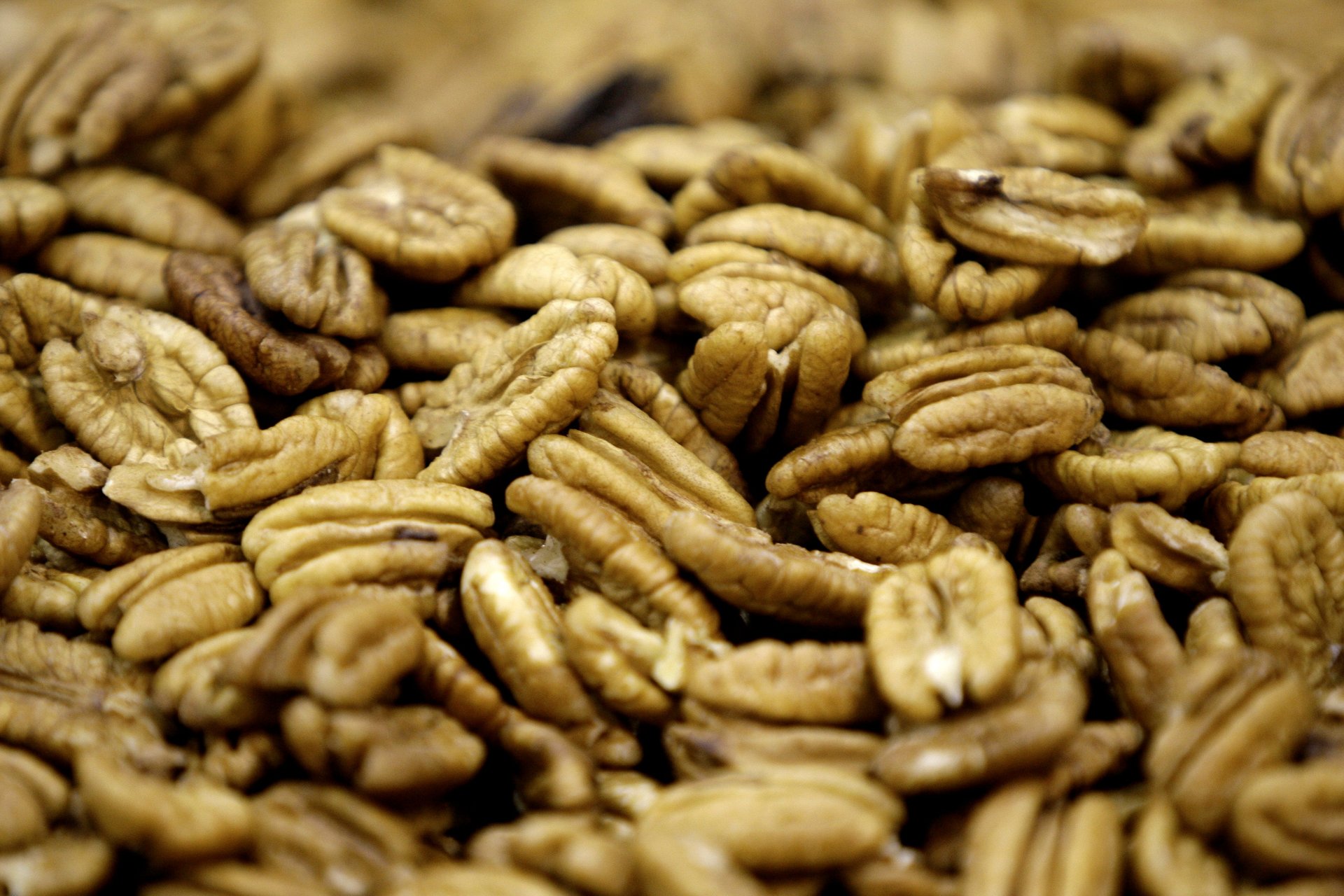Hurricane Michael threatens the world’s supply of pecans
Pecan farmers in the state of Georgia are worried. Hurricane Michael is predicted to barrel through the state’s pecan belt, where the trees are loaded with nuts and the yearly harvest has just begun.


Pecan farmers in the state of Georgia are worried. Hurricane Michael is predicted to barrel through the state’s pecan belt, where the trees are loaded with nuts and the yearly harvest has just begun.
“There’s nothing they can do right now until this passes,” Janice Dees, executive director of the US Pecan Growers Council, told Quartz from the council’s headquarters in Tifton, Georgia. “If the winds are as heavy or are going to be as hard as what they’re reporting…it’s going to be catastrophic.”
Georgia is the top pecan producer in the US, which which grows 80 percent of the pecans in the world. Harvest starts the first weeks of October and continues through early December.
Farmers in the state are still recovering from damage from Hurricane Irma in 2017, though Dees pointed out that last year’s storm affected a relatively small number of growers on Georgia’s east coast and mostly damaged young trees. Michael’s predicted path starts in the southwest of the state, moving northeast—essentially following the heaviest areas of pecan production.
“It if goes on the path that they’re predicting, there could be a huge loss to the crop of Georgia pecans,” she said.
While heavy rains can waterlog fallen nuts, strong winds are the real concern. Pre-harvest trees, loaded with heavy nuts, are vulnerable to damage, and young trees without mature root systems are sometimes entirely upended by high winds.
The federal Farm Services Agency provides some financial help to farmers whose trees are destroyed or damaged in natural disasters. Dees cautions that with tree crops, recovery can be slow. “You don’t get that back in a year,” she explained. “You’ve got to replant, and then it takes anywhere from seven to 10 years to have a crop on the tree. They’re still reeling from the damage they had last year.”
There should be enough pecans to keep the US in pecan pie come the holidays, thanks to nuts now in cold storage, Dees said. If a substantial number of trees are damaged by Michael, the pecan supply could be affected for years to come.
The storm is not the only big worry for pecan farmers right now.
China, the top importer of US pecans, placed a 47-percent tariff on the nuts this summer, as part of the trade war with Donald Trump. “A lot of nuts were going to Asia for Chinese New Year,” Dees said, noting that the South Korean and European markets for pecans have also grown in recent years. “There is going to be an impact, you can’t say that there won’t. You just don’t know how strong and deep that’s going to be right now, with the tariff situation.”